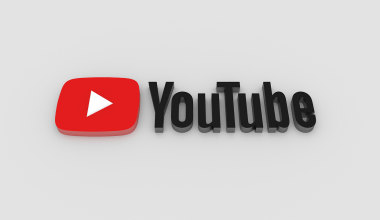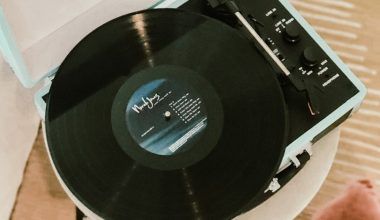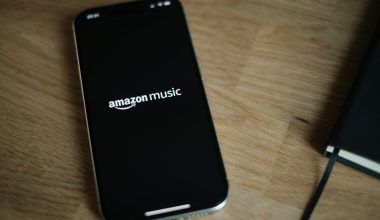If you are an aspiring musician or a seasoned artist, you have likely heard about an Electronic Press Kit (EPK). This essential tool helps showcase your music, brand, and story to industry professionals. An EPK is like your digital business card—it’s the first impression you leave with record labels, promoters, journalists, or venue managers. But creating an impressive EPK doesn’t have to feel overwhelming. Let’s explore how to build the perfect EPK template for music that highlights your talent and gets you noticed.
What Is an EPK in Music?
An EPK, or Electronic Press Kit, is a curated collection of materials that represent you as an artist. It typically includes your music, biography, press photos, videos, and contact information. Think of it as your all-in-one package designed to pitch yourself to industry professionals. Whether you’re submitting your music for festivals or pitching your songs to streaming platforms, an EPK is your best friend.
Why Every Musician Needs an EPK
Having an EPK is crucial for musicians because it’s the standard way the music industry gathers information about artists. Without one, you risk being overlooked. Imagine you’re a booking agent who needs to quickly assess whether an artist is a good fit for their event. If your materials aren’t neatly organized in one place, it’s likely you’ll miss the opportunity. An EPK helps eliminate this hurdle.
Essential Elements of an EPK Template for Music
An effective EPK template should be both professional and personalized. Let’s break down the essential sections you need:
1. Artist Biography
Your biography is the heart of your EPK. It’s where you share your story, influences, and musical journey. Keep it concise yet engaging. Include milestones like major performances, awards, or collaborations. When writing your bio, remember that the goal is to connect with your audience, not to list every detail of your career.
2. Music Samples
Your EPK should prominently feature your best tracks. Include streaming links or downloadable files for 3-5 songs that represent your style and talent. Make sure these files are high-quality and easy to access. Adding a brief description of each song’s inspiration or unique elements can provide additional context.
3. Professional Photos
High-resolution photos are a must. These images should reflect your personality and style. Include a mix of live performance shots and posed promotional photos. Remember, visuals play a significant role in capturing attention.
4. Press and Media Coverage
If you’ve received press coverage, include links or excerpts in your EPK. Testimonials, reviews, or interviews add credibility and demonstrate that others see value in your music.
5. Videos
Videos are another powerful element. Add live performance footage, music videos, or interviews. They give industry professionals a sense of your stage presence and overall vibe.
Ensure your EPK includes links to your social media profiles and official website. These channels allow professionals to explore your work further.
7. Contact Information
Finally, make it easy for people to reach you. Include your email, phone number, and the contact details of your manager or booking agent (if applicable).
Designing Your EPK Template for Music
The design of your EPK should be clean and professional. Avoid clutter and focus on a layout that highlights your strengths. Use headings, bullet points, and white space to make the content easy to skim. While many musicians hire designers for this, plenty of online tools and templates can help you create a polished EPK on your own.
Tips for Crafting an Outstanding EPK
Know Your Audience
Before you start building your EPK, think about who will be viewing it. Are you targeting festival organizers, record labels, or booking agents? Tailor the tone and content to match their expectations.
Keep It Updated
An outdated EPK is a missed opportunity. Regularly update your press kit with new music, recent press coverage, and upcoming events.
Be Selective
While it’s tempting to include everything, focus on showcasing your best work. A well-curated EPK will leave a stronger impression.
Highlight Achievements
Don’t shy away from highlighting your accomplishments. Have you hit a million streams? Opened for a famous artist? These milestones can set you apart.
EPK Template for Music: Free vs. Paid Options
There are plenty of ways to create an EPK, from free platforms to premium services. Free options like Canva or Google Docs offer customizable templates that work well for beginners. Paid platforms, such as Sonicbids or Bandzoogle, provide more advanced features tailored specifically for musicians.
Common Mistakes to Avoid When Creating an EPK
- Overloading Information: Keep it concise and relevant.
- Low-Quality Media: Invest in professional-quality photos and audio files.
- Broken Links: Test all links to ensure they work.
- Ignoring Design: A poorly designed EPK can undermine your professionalism.
- Not Proofreading: Typos and grammatical errors can leave a bad impression.
The Role of EPKs in Networking
Beyond showcasing your music, an EPK serves as a networking tool. Sharing your EPK at industry events or sending it as a follow-up after a meeting can solidify connections. It shows that you take your career seriously.
Final Thoughts on Building Your EPK Template for Music
Creating an EPK doesn’t have to be a daunting task. With a little planning and creativity, you can design a press kit that highlights your talent and leaves a lasting impression. Remember, your EPK is a reflection of your brand. Take the time to make it as professional and polished as possible.
Whether you’re a budding artist or an established musician, having a well-crafted EPK can open doors and help you stand out in the competitive music industry. So why wait? Start building your EPK template for music today and take the first step toward achieving your dreams.
For further reading, explore these related articles:
- Exploring the Best Free Music Distribution App for Independent Artists
- Comprehensive Breakdown of Music Distribution Costs for Artists
For additional resources on music marketing and distribution, visit Deliver My Tune.






